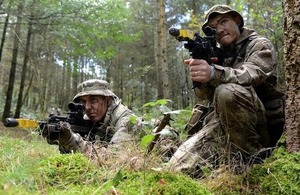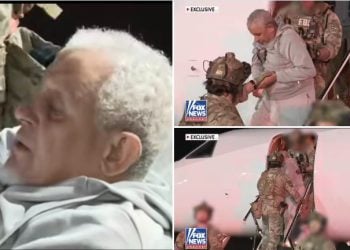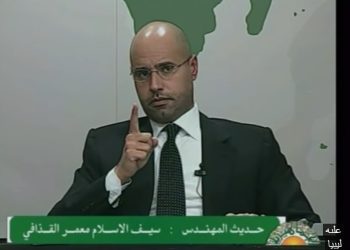By Libya Herald reporters.

Tripoli and London, 8 September 2014:
Some 30 Libyan army cadets training in the UK have left their course . . .[restrict]and returned to Libya after they allegedly freed three colleagues who had been detained for leaving their camp without permission.
The incident occurred last month according to the Daily Mail, which said that a British army corporal had been roughed up before agreeing to release the three Libyan cadets held in the guard house.
The Bassingbourn Barracks in Cambridgeshire in the east of England where the confrontation is supposed to have taken place, received its initial intake of Libyan troops in June. The 300 arrivals are the first of 2,000 cadets that the British are giving six months of basic infantry training. The project is the result of an agreement reached last summer at the G8 meeting in the UK between the-then premier Ali Zeidan and his British opposite number David Cameron. The cadet are being trained by the 3rd Battalion of the Royal Regiment of Scotland.
Though the Libyans have been taken on escorted visits to neighbouring towns, the British Ministry of Defence is not allowing them to leave the barracks independently. Three Libyans who flouted this restriction were found in Brassingborn village by British army training staff.
They were being held in the guardhouse pending further action when around 20 of their comrades arrived, demanding their release. According to the Daily Mail, a corporal on duty was involved in a heated and at time violent confrontation before agreeing to release the prisoners to their friends. The British Ministry of Defence said that soldier had face “considerable intimidation”.
It seems likely that reaction to the arrest of the three cadets was linked to other sources of discontent. One of these is delayed salaries that should be disbursed through the Libyan embassy in London. Some UK colleges and universities are also complaining that fees are not being paid. The Libya Herald understands that one unpaid flight school is on the verge of terminating the teaching and accommodation of its Libyan students and sending them home.
The unrest at the Brassington barracks also came at a time when many of the cadets will have been anxious for their families and friends in Libya as fighting broke out in Tripoli toward the end of Ramadan. It is unclear if the British sent the cadets home or whether they themselves chose to leave the course.
[/restrict]








